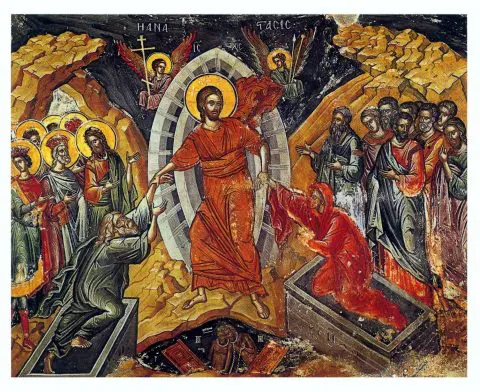Startling Beauty and Truth Found in Milton’s Paradise Lost
Among the great works of western literature is Milton’s – Paradise Lost
This timeless retelling of the book of Genesis is meritoriously placed alongside the brilliant writings of Shakespeare and Joyce.
I finally mustered the courage to open the gate into Milton’s accounting of humanity’s fall and the redeeming grace that saves us.
After taking in just a few verses, Milton pulled me deep inside with the same force the earth draws every object with mass towards its center.
Truth be told, did the poetic prose become daunting at times?
Absolutely, but only increasing my desire to dig deeper into the hidden meaning behind the words.
Milton never let go of God’s sovereignty over his creation.
Beauty, rebellion, tragedy and redemption were all there, cast through Milton’s eyes according to the Book of Genesis.
Simply put – Paradise Lost is a masterpiece.
Milton’s life fell into a dark abyss.
At the time Paradise Lost was published in 1667, Milton had been completely blind in both eyes for five years. During the same time period, his wife died just three days after giving birth to their fourth child; and six weeks later, his third child and only son, John, also died. These sufferings accompanied his own near execution for being an anti-Royalist and a Puritan.
Yet in the face of devastating loss, Milton conceived and dictated more than 10,000 lines of superior poetic verse that would become his most epic poem. The work solidified his legacy as one of the greatest English poets of all time.
How he accomplished this is sheer mystery.
Right from the start, Milton wastes no time in getting to the heart of the matter. As God reveals his divine plan for the world, the Deceiver (Satan) is seething with hatred.
For this wretched rebellious angel, “It is better to reign in hell then serve in heaven.”
No – Satan would not serve God’s divine plan. He would not venerate the Woman who would become the Mother of God.
Created by God with free will, he chose to rebel against the Almighty.
Now cast out of heaven, the Deceiver seeks only to destroy the divine plan. Rebellion would be carried out by insurgent angels also desiring to set the Deceiver above the might of the most High (Book 1: 38-40). Thus, he went looking in search of souls to devour like a roaring lion, and found Adam and Eve in the Garden.
Milton describe’s the Deceiver’s fall from the heavenly realm this way:
Hurl’d headlong flaming from th’ Ethereal Sky
With hideous ruin and combustion down
To bottomless perdition, there to dwell
It will be nine days before Deceiver can so much as lift his head from the lake of fire and begin to undertake his campaign of vengeance against the Almighty.
Milton’s luminous use of poetic language as a means to recapture what God reveals in Genesis is accomplished with startling beauty.
The narrative between God the Father and Christ the Son on mankind’s disobedience and the salvific plan is breathtakingly beautiful.
Here are two (of many more) favorite narrations:
In Book III, God announces that Adam and Eve will fall and only a sacrifice made on their behalf will save them.
Thus, while God spake, ambrosial fragrance fill’d all heaven,
and in the blessed Spirits elect Sense of new joy ineffable diffus’d beyond compare
the Son of God was seen most glorious, in Him all his Father shon
substantially express’d, and in his face Divine compassion visibly appeared,
Love without end, and without measure Grace,
Which uttering thus He to his Father spake“Behold me then, me for him, life for life I offer; on me let thine anger fall; Account me man: I for his sake will leave Thy bosom, and this glory next to thee freely put off, and for him lastly die well pleas’d: on me let death wreak all his rage. Though now to death I yield, and am his due
All that of me can die, yet that debt paid, Though will not leave me in the loathsome grave
But I shall rise Victorious (III, 236–250).
In Book VI, St. Michael the Archangel is engaged in warfare with Satan.
Christ suddenly enters and speaks:
“Stand still in bright array ye Saints, here stand ye angels arm’d,
this day from battle rest.
Faithful hath been your warfare, and of God accepted, fearless and righteous cause,
And as ye have received, so have ye done invincibly
But of this cursed crew, the punishment to other hand belongs
Vengeance is his, or whose he sole appoints;
By me, not you but me they have despis’d,
Yet envied; against me is all their rage because the Father, t’whom in Heav’n supreme Kingdom and Power and Glory appertains,
hath honored Me according to his will.
Therefore to Me their doom he hath assigned; that they may have their wish, to trie with Me in battle.”So spake the Son, and into terror changed his countenance too severe to be beheld
And full of wrath bent on his enemiesThey astonished, all resistance lost, all courage; down their idle weapons dropped
Headlong themselves they threw down from the verge of heaven,
eternal wrath burnt after them to the bottomless pit.
Hell heard the insufferable noise
Nine days they fell
Hell at last,
Yawning, received them whole, and on them closed.
Evil cannot bear the glory of the Son of God. Darkness ends in the Light of Christ.
In my humble prayer to unceasingly hold on to the never ending presence of Christ in all suffering, I will most certainly return to Paradise Lost again and again. At the core of Milton’s writing, we find the most beautiful truth that we are created in the image of God. And in so doing, God’s love carries us out of every season of suffering to prevail in Him, with Him and through Him.
May you walk in God’s promises. And may you be fortified by poetic works that inspire all things divinely good, beautiful and true.
Until we meet again,



